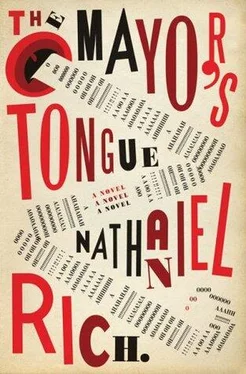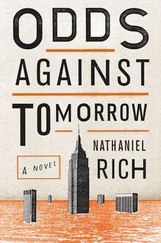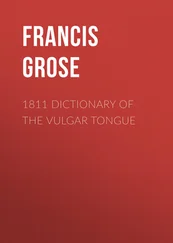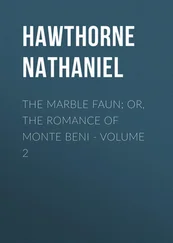"Thanks for taking me here," he said. Sonia laughed harder.
"You're very brave," she said, with a wink of her scarred eye.
Sonia lowered her leg, wiggling it down into the mud.
"What do you do when you're not at my father's office?" she asked. "Besides take luxuriant mud baths?"
Eugene had to think for a second.
"I take long subway rides. I go exploring Staten Island. I eat lots of Chinese food. I go canoeing around the pond in Inwood Hill Park with my friend Alvaro. I read books. I sometimes think about trying to write."
"Oh? Like what? You're working on something?"
"It's embarrassing to talk about."
"Short stories?"
"Something longer."
"Really? How much have you written so far?"
"Not a single line," said Eugene. He lowered his arm back into the tub. "The last few months I've been busy translating a friend's novel into English. He's from the Dominican Republic and speaks a rare Spanish dialect called Cibaeño. It's about a surgeon priest named Jacinto, who falls in love with Alsa, a neighbor in his Inwood apartment building."
"What happens to them?"
"I'm not sure yet, I only just finished with the first section. It ends with a scene in which Alsa's father, having found out about Jacinto and Alsa's love affair, throws Alsa out of the house. She's humiliated and dishonored, so she runs away, back to the Dominican Republic."
"So you're able to understand this dialect — Cibaeño?"
"I get the gist of it. I think I understand him pretty well."
"I don't think I understand you very well."
"I'd like you to."
The sonata abruptly cut out of the speakers. After a brief jolt of static, Stanka's voice came on.
"You will please remove yourselves from the baths and exit the mud room. Please do not put on the towels. They must not be muddied. There are showers in the locker rooms."
Sonia, bracing her hands on either side of her tub, pushed herself out. Eugene did the same. It was impossible not to face each other, two Swamp Things caked in peat moss and black sludge. Swamp Sonia was gorgeous. Her hair stuck to her shoulder in a clump, and mud trailed down her neck, her breasts, the slight swell of her tummy, and just below, filing into thin stringy clusters. This elegant mud monster regarded Mud Eugene with a sideways expression, and extended a small mud paw to his face. Eugene froze. The thing in his chest had claws now and was racing around.
"You have a little something here," she said, picking a small rock off his shoulder. She was grinning, her face bright and impossibly clean.
"And you too," said Eugene. He pulled a root, dangling tendrils, from her neck.
"Thank you."
"Thank you," he replied, "for taking me here."
They headed to their separate locker rooms, leaving a trail of black footprints behind them on the yellow-tiled floor.
After their showers they met outside. Broadway was painfully bright and hot and filled with dour-faced commuters, diving into the subways and glaring from behind the fogged windows of public buses. Eugene hailed a cab.
"I'll be writing regularly to my dad from Italy," she said, hugging him." I'll include little jokes that he won't get. Just for you. OK? We'll have our own little code."
A sudden physical longing overcame him like a cloud of black smoke.
"But how can I write you? Can I call?"
"That might be difficult. I'm supposed to go live with a family friend in Trieste named Frank Lang, but I may stay with other friends as well. I'll send an address when I know."
"Is that it? You're just leaving?"
"I hate it, but I have to." She was wearing a brave expression: buttoned-up lips, pinched cheeks. "Now wish me a good trip."
"Have a wonderful trip."
She vanished, smiling, into the dark backseat of the cab. Then, just before the door closed, she said something puzzling:
"You too."
It is Saturday again, and Rutherford and Mr. Schmitz are on their weekly walk across the northern edge of Central Park. "I've made reservations for a nice dinner tonight," says Rutherford. "For all three of us — me, you, and Mrs. Schmitz."
Mr. Schmitz pulls at the flesh of his chin, applying great torque. He exhales smoke out of the side of his mouth, a delicate gesture made absurd by the amount of force he applies to it.
"And Agnes?" he asks. "Why did you do that?"
"Because I have some news I want to tell you both."
"What news?"
"I'd rather wait until tonight."
"Is everything all right?"
"There is no need to worry. Believe me, I wouldn't tell you anything that might upset you."
They don't speak about it again, but when Mr. Schmitz returns from his walk, Agnes can see that he is flustered.
"Are you all right?" she asks. "Dear?"
"There's no need to panic, darling."
"I'm not panicked."
"No need to panic."
That night, Rutherford takes the Schmitzes to an expensive, dimly lit Chinese restaurant near Lincoln Center. A plate of green sesame noodles sits on the table. Neither Rutherford nor Agnes is able to eat, so Mr. Schmitz, with a sigh, pulls the plate in front of him.
"I guess I'll warm us up," he says, reaching for his fork.
"Mr. Schmitz," says Rutherford. He pauses for some moments, recollecting himself. Mr. Schmitz swallows his noodles loudly." I've just had some news from Rudy Teague."
"That's his editor, Agnes," says Mr. Schmitz. A fresh wave of concern ripples her features.
"At Food and Pleasure ," says Rutherford, taking his eyes off Mr. Schmitz. "Where I write my column. Wrote, that is. I've been dismissed."
A clump of noodles drops out of Mr. Schmitz's gaping mouth.
"Why, you've been writing that column for, what, fifteen years?" says Agnes.
"Thirty. They've made a decision to replace me with a young woman — a chef — who has a popular television show on the cooking channel."
"Bastard," says Mr. Schmitz. " That man is a bastard ."
"There's good news to come of it, however," says Rutherford, with a thin, synthetic smile. "Do you know that section near the back of the magazine, where they have reviews of new restaurants opening across Europe?"
Mr. Schmitz licks his lips, as if they might taste of vengeance.
"You may have seen, in that section, reviews by a certain Giancarlo Varese, who writes about Milan. Wrote, that is. He died last year. They considered discontinuing the post, since they already have a correspondent in Italy, based in Rome. But in honor of my service to the magazine, they've offered me Varese's job, and his apartment in Milan, which they'll pay for, along with all dining costs."
Mr. Schmitz puzzles this over for several minutes, rubbing his chin and gazing off into the distance.
"So you'll resign, naturally. No other response that I can see." Mr. Schmitz seems pleased with this, and begins to put the noodles into his mouth once more.
"Look, I'd love to. I really would. I like my life here. But as you know, I don't have any income. The residuals from my last collection of culinary criticism stopped accruing five years ago. I have an expensive lifestyle in New York. I can't maintain it any longer."
"But that's not true, is it? Besides—"
"I don't have any other option but to accept," says Rutherford, gritting his teeth.
Mr. Schmitz jolts as though he has been kicked from behind. His eyes marble and his fork begins to tap against his plate of noodles. Agnes puts her hand to her cheek.
"The mind," says Mr. Schmitz, "reels."
"I realize this news has a ring of finality to it, but it's probably only a temporary arrangement."
Mr. Schmitz's fork is hitting against the china so forcefully that a waiter approaches, assuming that he has been summoned. Rutherford waves him off.
Читать дальше












